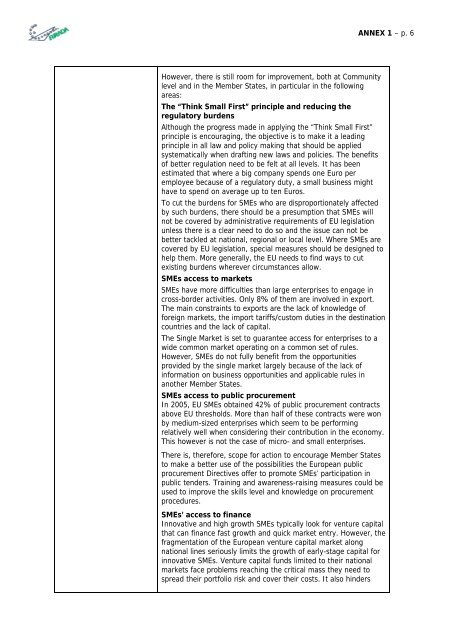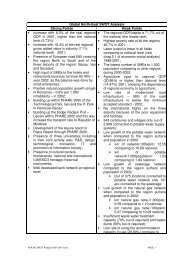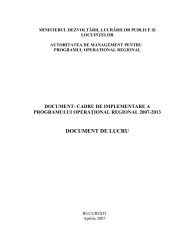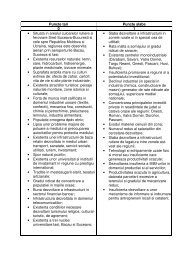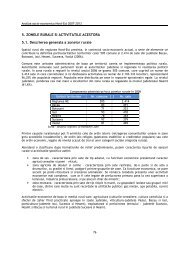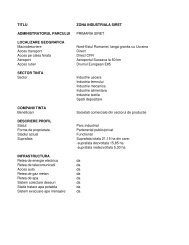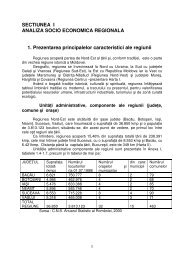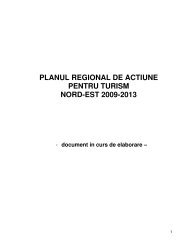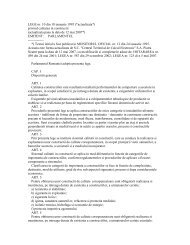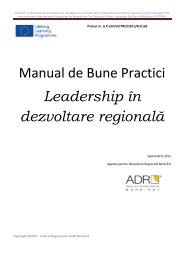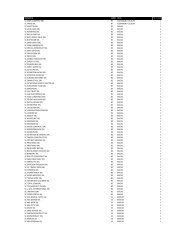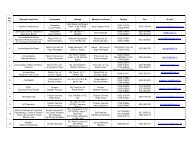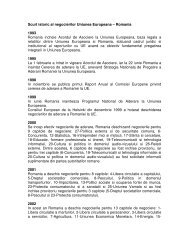EURADA News no. 288
EURADA News no. 288
EURADA News no. 288
You also want an ePaper? Increase the reach of your titles
YUMPU automatically turns print PDFs into web optimized ePapers that Google loves.
ANNEX 1 – p. 6<br />
However, there is still room for improvement, both at Community<br />
level and in the Member States, in particular in the following<br />
areas:<br />
The “Think Small First” principle and reducing the<br />
regulatory burdens<br />
Although the progress made in applying the “Think Small First”<br />
principle is encouraging, the objective is to make it a leading<br />
principle in all law and policy making that should be applied<br />
systematically when drafting new laws and policies. The benefits<br />
of better regulation need to be felt at all levels. It has been<br />
estimated that where a big company spends one Euro per<br />
employee because of a regulatory duty, a small business might<br />
have to spend on average up to ten Euros.<br />
To cut the burdens for SMEs who are disproportionately affected<br />
by such burdens, there should be a presumption that SMEs will<br />
<strong>no</strong>t be covered by administrative requirements of EU legislation<br />
unless there is a clear need to do so and the issue can <strong>no</strong>t be<br />
better tackled at national, regional or local level. Where SMEs are<br />
covered by EU legislation, special measures should be designed to<br />
help them. More generally, the EU needs to find ways to cut<br />
existing burdens wherever circumstances allow.<br />
SMEs access to markets<br />
SMEs have more difficulties than large enterprises to engage in<br />
cross-border activities. Only 8% of them are involved in export.<br />
The main constraints to exports are the lack of k<strong>no</strong>wledge of<br />
foreign markets, the import tariffs/custom duties in the destination<br />
countries and the lack of capital.<br />
The Single Market is set to guarantee access for enterprises to a<br />
wide common market operating on a common set of rules.<br />
However, SMEs do <strong>no</strong>t fully benefit from the opportunities<br />
provided by the single market largely because of the lack of<br />
information on business opportunities and applicable rules in<br />
a<strong>no</strong>ther Member States.<br />
SMEs access to public procurement<br />
In 2005, EU SMEs obtained 42% of public procurement contracts<br />
above EU thresholds. More than half of these contracts were won<br />
by medium-sized enterprises which seem to be performing<br />
relatively well when considering their contribution in the eco<strong>no</strong>my.<br />
This however is <strong>no</strong>t the case of micro- and small enterprises.<br />
There is, therefore, scope for action to encourage Member States<br />
to make a better use of the possibilities the European public<br />
procurement Directives offer to promote SMEs’ participation in<br />
public tenders. Training and awareness-raising measures could be<br />
used to improve the skills level and k<strong>no</strong>wledge on procurement<br />
procedures.<br />
SMEs’ access to finance<br />
In<strong>no</strong>vative and high growth SMEs typically look for venture capital<br />
that can finance fast growth and quick market entry. However, the<br />
fragmentation of the European venture capital market along<br />
national lines seriously limits the growth of early-stage capital for<br />
in<strong>no</strong>vative SMEs. Venture capital funds limited to their national<br />
markets face problems reaching the critical mass they need to<br />
spread their portfolio risk and cover their costs. It also hinders


